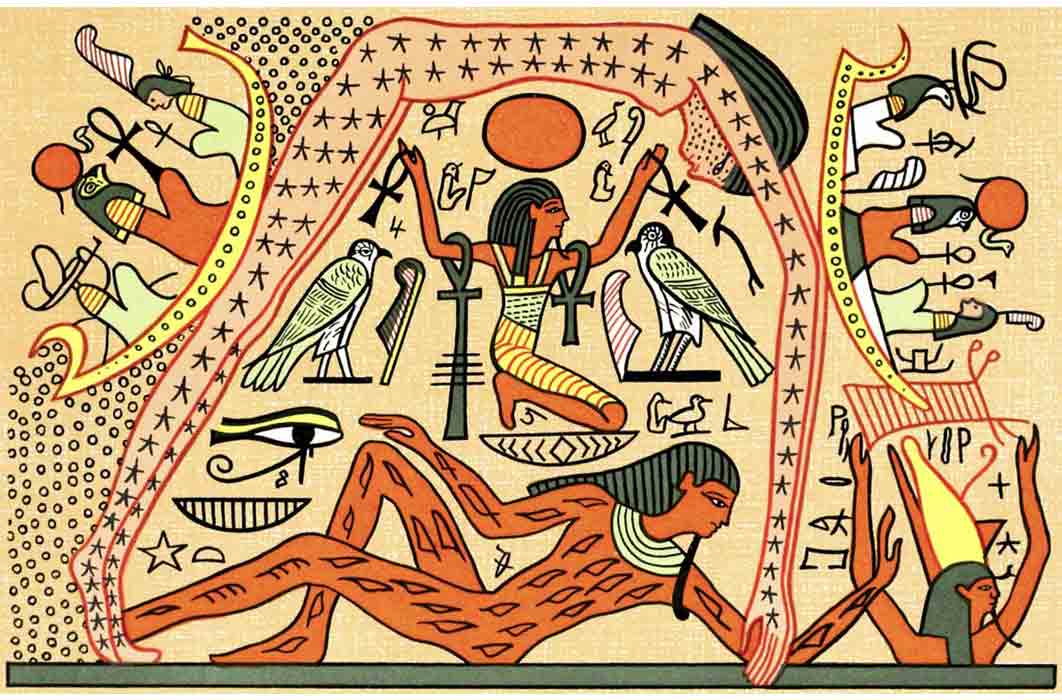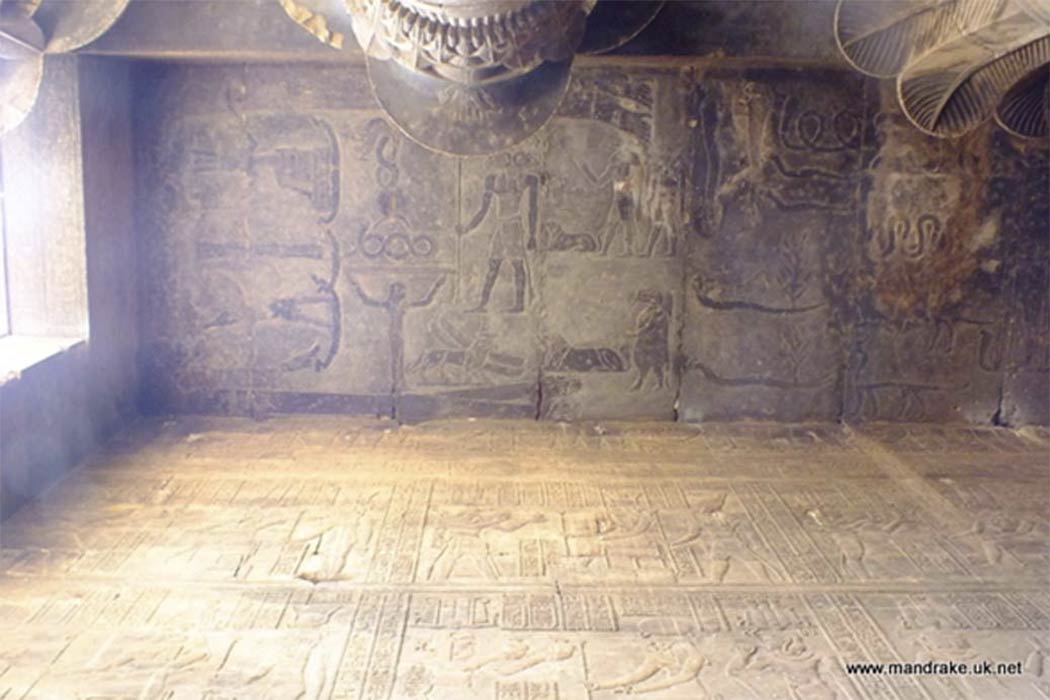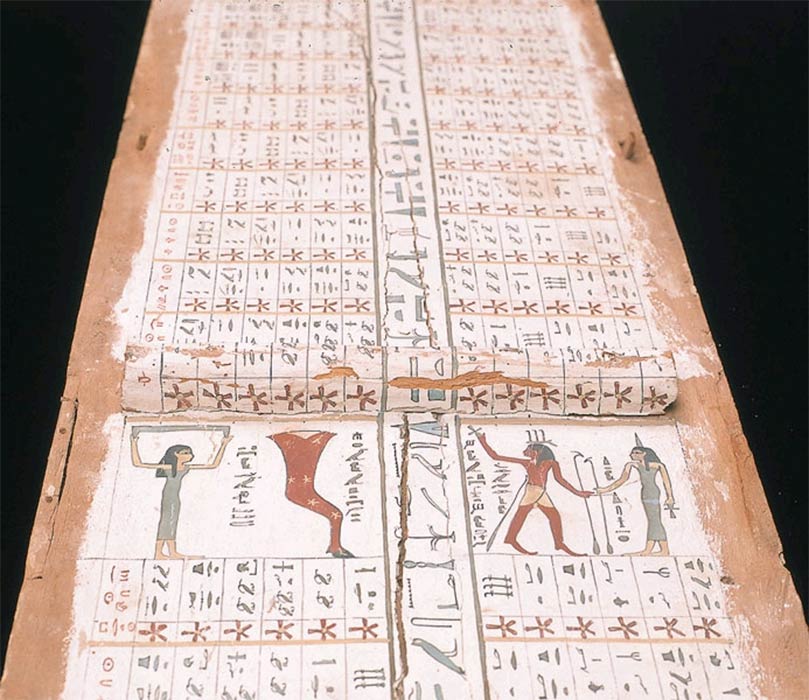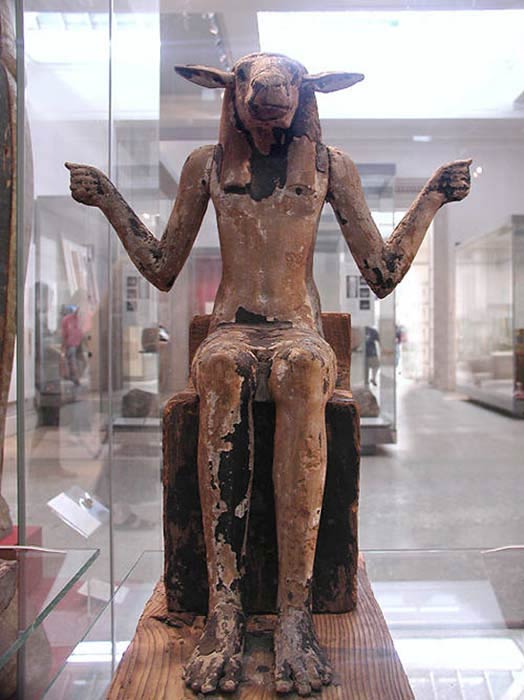
The Demonic Calendar Of Ancient Egypt
The Egyptians, like many cultures, had no generic word for ‘demon’. Although some words, such as Akhw, get very close. Etymologically, the Greek derived term ‘daemon’ or ‘demon’ means divider or alloter, and from Homer’s time onwards, it referred to an operator of unexpected and intrusive events in a person’s life. Unlike Olympian gods, a daemon was an impersonal thing, unpredictable, anonymous and often frightful in manifestation, thus connected with fate.

Egyptian scene with demons (Image: Courtesy Chris Morgan)
Plato, perhaps influenced by Egyptian and Hindu thought, added a new concept of the ‘guardian daemon’ that accompanied a person in life, and postmortem, acted as one’s judge or advocate. Contemporary magical practitioners often describe a spiritual entity known as the Holy Guardian Angel, that becomes attached to or comes into existence at one’s birth or conception.
The Living, The Dead And The Gods
The ancient Egyptians recognized three categories of sentient beings: The Ankhew, the Akhew and the Neterew which can be translated as the Living, the Dead and the Gods. All three have their good and bad sides. In fact, Egyptian texts present much information about the ancient fear of attack from night demons, but because of a general prejudice amongst old guard Egyptologists, much of this information was buried in obscure academic publications.

A Middle Kingdom star chart (Public Domain)
One such spell lay untranslated for years after its discovery, until younger academics such as Robert Ritner, took another look. To paraphrase his translation: “Oh male adversary (DAy), Oh female adversary, Oh male ghost, Oh female ghost, Oh dead men, Oh dead women, be far from me. Listen but do not come. Your faces are twisted backwards, your limbs are unsound. Your heart is destined for the sacrificial meal of the Cobra Goddess”.
The spell reveals the way most Egyptians viewed the perils of the night. These entities can be dangerous, and there is a relationship between them and certain kinds of illnesses. Central to the process are night demons, ‘vampiric’ entities that are now known as ‘incubi’ or ‘succubi’. These creatures attack sexually, entering the bodies of their victims, perhaps during lovemaking, distracting sexual and other body fluids such as blood.

Ram-headed demon, hands outstretch probably to hold two snakes. From a royal tomb in the Valley of the Kings, Thebes, Egypt. (1325 BC).British Museum (Public Domain)




